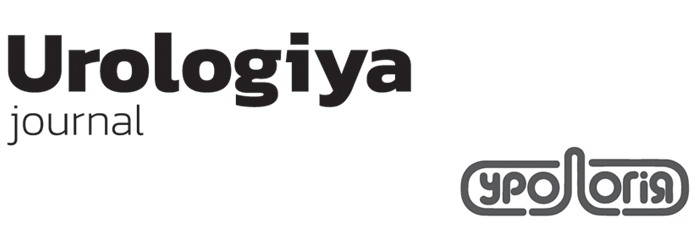S.O. Borisov, F.I. Kostev, O.V. Borisov
Inflammatory and anti-inflammatory effects of prostaglandins and leukotrienes on the blood and kidneys in experimental pyelonephritis complicated by diabetes mellitus with evaluation of pharmacocorrection
This study is experimental and clinical, performed on laboratory rats and is dedicated to the purpose of determining the level of prostaglandin E-2 and leukotriene B-4 in the blood plasma and kidney tissue of animals with acute pyelonephritis against the background of a concomitant hyperglycemic state for monitoring the development and course of the inflammatory process and assessing the effectiveness drug influence. The renal tissue contains a significant amount of prostaglandins and is actively involved in their synthesis and metabolism, regulating the inflammatory reactions and tone of the upper urinary tract, maintaining a normal balance between different groups of PGs, which have multidirectional physiological effects. It was found that in acute pyelonephritis in rats, a significant increase in the level of prostaglandin E2 in blood plasma by 106.4% and kidney tissue by 48.9%, and leukotriene B4 in blood plasma by 54.8% and in kidney by 27.5% was revealed. compared to the norm. It should be noted that the use of etiotropic-pathogenetic drug action contributed to a significant decrease in the levels of PGE2 and LV4 in the blood plasma and in the kidney tissue of rats with reproductive acute pyelonephritis and diabetes mellitus, which indicates the effectiveness of the proposed drug effect on the course of the infectious and inflammatory process and prevention of the development of severe renal complications due to concomitant hyperglycemic conditions. The aforementioned etiopathogenetically oriented drug effect allows achieving a certain balance of pro- and anti-inflammatory regulators, the combined action of which prevents not only the progression and complication of inflammation, but also the transition of an acute inflammatory process into a chronic phase. It is likely that the investigated inflammatory mediators (eicosanoids) are able to activate apoptosis; in this aspect, the last protective mechanism contributing to the elimination of excess damaged cells from the renal glomeruli and tubules and restoration of their structure, providing a favorable completion of the inflammatory process and preventing the development of its complications in a concomitant hyperglycemic state.

